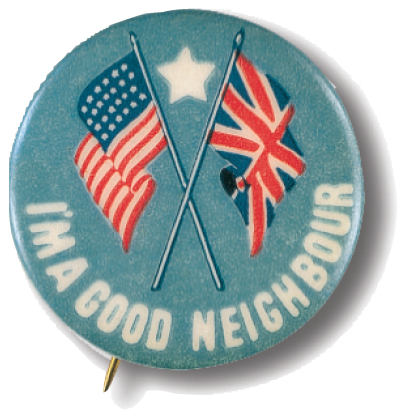The Good Neighbor Policy.
Printed Page 683 Chapter Chronology
The Good Neighbor Policy. In 1933, Roosevelt announced that the United States would pursue "the policy of the good neighbor" in international relations, which meant that no nation had the right to intervene in the internal or external affairs of another. The good neighbor policy did not indicate a U.S. retreat from empire in Latin America. Instead, it declared that, unlike in past decades, the United States would not depend on military force to exercise its influence in the region. Roosevelt refrained from sending troops to defend the interests of American corporations in Latin America. While Roosevelt's hands-off policy honored the principle of national self-determination, it also permitted the rise of dictators in Nicaragua, Cuba, and elsewhere, who exploited and terrorized their nations with private support from U.S. businesses.
good neighbor policy
Foreign policy announced by Franklin Roosevelt in 1933 that promised the United States would not interfere in the internal or external affairs of another country, thereby ending U.S. military interventions in Latin America.

Military nonintervention also did not prevent the United States from exerting its economic influence in Latin America. In 1934, Congress gave the president the power to reduce tariffs on goods imported into the United States from nations that agreed to lower their own tariffs on U.S. exports. By 1940, twenty-two nations had agreed to reciprocal tariff reductions, helping to double U.S. exports to Latin America and contributing to the New Deal's goal of boosting the domestic economy through free trade.